Acting now on solutions for displaced and host communities towards self-reliance and prosperity
Community Visions for Return, Reintegration, and Development in Afghanistan
July 13, 2022

Women entrepreneurs sit at the centre of Afghanistan's community strategies for economic recovery
Authors: Francisco Santos-Jara Padron and George May, UNDP Bangkok Regional Human Mobility Team
__
The deadly effects of an earthquake that hit Afghanistan last week – in which more than 1000 lives were lost – throw into sharp relief the structural fragility in the country. Socio-economic, gender, climate change, and conflict-related challenges exacerbate the impact of natural hazards and hinder Afghans' resilience to future shocks and crises.
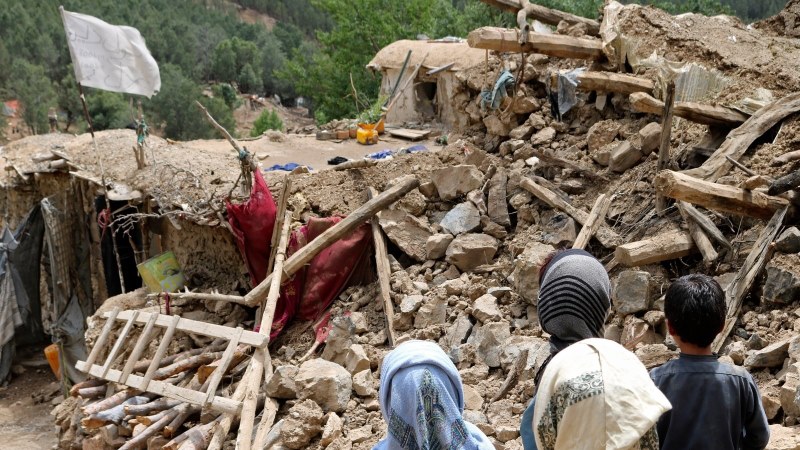
One of 2500 houses destroyed by the earthquake in Paktika and Khost provinces
Across the country, people previously displaced by conflict are returning to communities where access to essential goods and basic services are scarce and livelihood opportunities rare. Afghanistan is facing a protracted multi-dimensional crisis, with near-universal poverty compounded by climate vulnerability, natural hazards, and a severe lack of liquidity in markets.
Amongst this crisis, however, the seeds of recovery are being sown. With support, entrepreneurs, especially women, find ways to create jobs and livelihoods in the short term, move towards self-reliance in the medium term, and forge new economic futures for their communities in the long run.

Members of the Community Development Council, Jebrial Township, request support to move towards their vision of Herat as a prosperous city
Afghans need support to meet their basic needs, but they request this be part of a broader strategy to strengthen their resilience and set a new path from merely surviving to thriving.

Asfaneh - a member of Heart's Women's Chamber of Commerce - explains how she sees her business in app development and website design being part of a broader movement of tech entrepreneurship in Afghanistan
Afghan women business leaders' resilience, ingenuity, and imagination are crucial to pathways for a better future. UNDP and UNHCR are combining forces – building on the UNDP ABADEI and UNHCR Co-Proposer Programmes – to support community resilience, create jobs in sustainable value chains, build demand, and market-driven, scalable businesses and rehabilitate productive infrastructure.
UNDP and UNHCR are working with communities to meet their immediate livelihoods with an eye on the future, ensuring all activities are part of long-term recovery and sustainable community development strategy.

Herat
Zahra is a businesswoman in Herat. She is also a midwife and a returned refugee from Iran. She started producing high-quality traditional clothing for sale in local markets in 2020, but she had bigger dreams. Karimi production's business now employs 15 women designing, producing, and marketing a range of garments, from specialist clothing for use in healthcare, winter coats for export to China, and intricately embroidered dresses for sale in Kabul.
She wants her business to grow further so she can give more women the opportunity to work, gain skills, and support their families. As she explains her motivations to us, her father looks on, smiling with pride. Zahra will receive support from UNDP and UNHCR’s joint programme to implement her business plan.

Zahara and Nasar Shinwari discuss the expansion plan for Karimi production
Zahra is a businessperson in Herat. She is also a midwife and a returned refugee from Iran. Together, UNDP and UNHCR are supporting her aspirations.
Bassgull and Ali Reza are an entrepreneurial power couple in Jebrial town, Herat. They established their business with a small grant from UNHCR in 2019. They showed us around their factory, which now employs 120 people. Their production line is versatile and demand-driven. Women and men work side by side to produce winterwear for export, face masks to protect people from COVID-19, and socks and undergarments for sale within Afghanistan.
Bassgull explains that they need machinery for fabric making and dying for the next phase of their business plan to reduce their dependency on imported fabrics. With this equipment, she will be able to provide jobs for 20 more people in manufacturing and packing. Bassgull and Ali Reza have savings from their business for reinvestment. Still, they cannot entirely cover the cost of the new machinery – UNDP and UNHCR are helping them bridge the gap through co- financing the expansion plan.
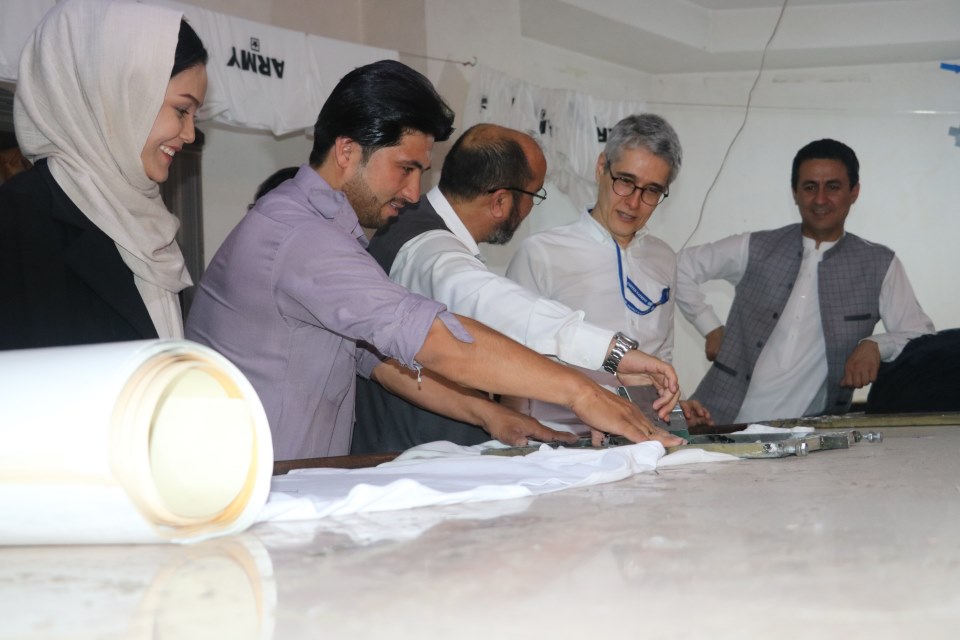
Bassgull and Ali Reza demonstrate printing techniques used to cheaply add value to basic clothing items such as t-shirts
Zahara, Bassgull, and Ali are driving recovery in Herat in one of several key sectors. From discussions with business people, NGOs, the Herat Women’s Chamber of Commerce, and the Community Development Council in Jebrial Town – a priority area of return and reintegration targeted under the UNDP and UNHCR partnership – we began to understand the future people imagine for their city.
There are countless humanitarian needs in Herat. Still, community members were quick to share Herat’s strengths: surrounding abundant and rich agricultural land, skilled and educated population, an industrial park, a vibrant historical centre, and young women and young men keen to drive a nascent tech sector.
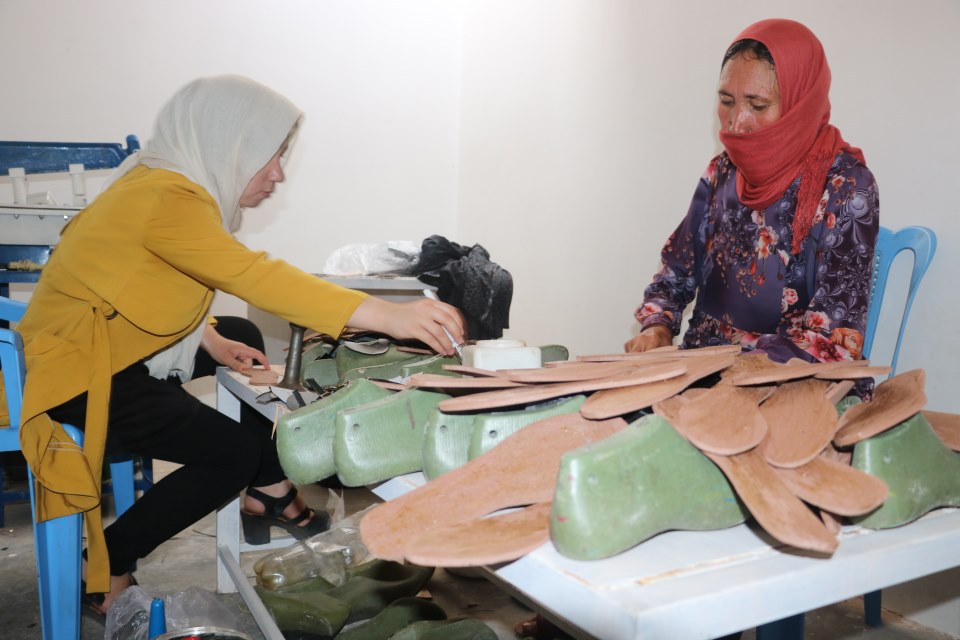
Workers at a small women-led enterprise produce shoes for sale in Kabul
A vision for prosperity in Herat began to crystalise through this discussion of strengths. Herat is a city in which: advanced food processing is a critical component of value chains that reach out into rural areas in the Western regions; manufacturing of clothing for a domestic market scaled for exports to neighbouring countries; graduate engineers are equipped with skills in computer-aided design to support manufacturing industries; tech-savvy young women and men capitalise on improved connectivity to provide services for a recovering national business market, and people from across Afghanistan are drawn by the beauty and historical significance of the historic centre. Afghanistan is a country in crisis, where even stability seems a long way off. Nevertheless, women and men are taking steps towards recovery and prosperity through entrepreneurship.

The Blue Mosque, Herat. A stunning example of Herat's cultural heritage is increasingly seen as an asset to social inclusion and economic growth for sustainable development. A new approach that responds to social and economic challenges and builds on local assets that increase opportunities for all.
While the ingenuity of entrepreneurs inspires confidence, lacking critical infrastructure is a significant barrier to success. Through the ABADEI programme, UNDP is working to address those gaps by providing immediate livelihoods to community members through cash for work. The UNDP-UNHCR joint community resilience program also addresses basic community infrastructure needs.
One key example is the solarisation of power for a women’s business centre in Herat. The centre will provide a space for women to work, access markets and skills through online platforms, network, and thrive. The communities of Herat are working on pathways toward sustainable economic development. Together, UNDP and UNHCR are supporting their aspirations for self-reliance and prosperity.
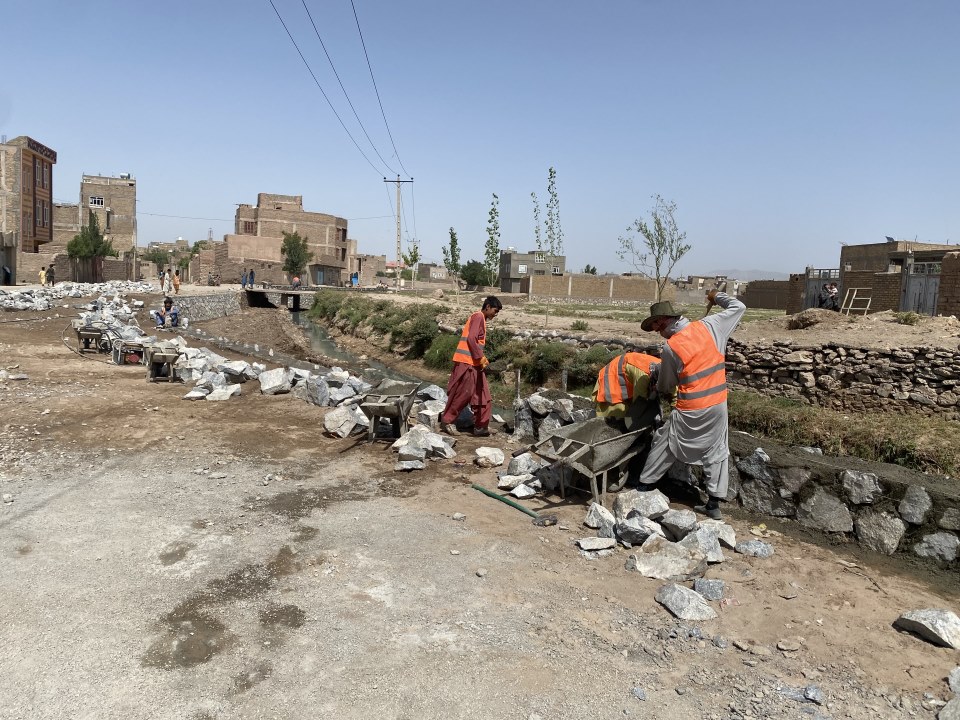
Community members build a flood defence canal along a key road for market access to lessen climate vulnerability, supported by UNDP's cash-for-work scheme
One key example is the solarisation of power for a women’s business centre in Herat. The centre will provide a space for women to work, access markets and skills through online platforms, network, and thrive. The communities of Herat are working on pathways toward sustainable economic development. Together, UNDP and UNHCR are supporting their aspirations for self-reliance and prosperity.
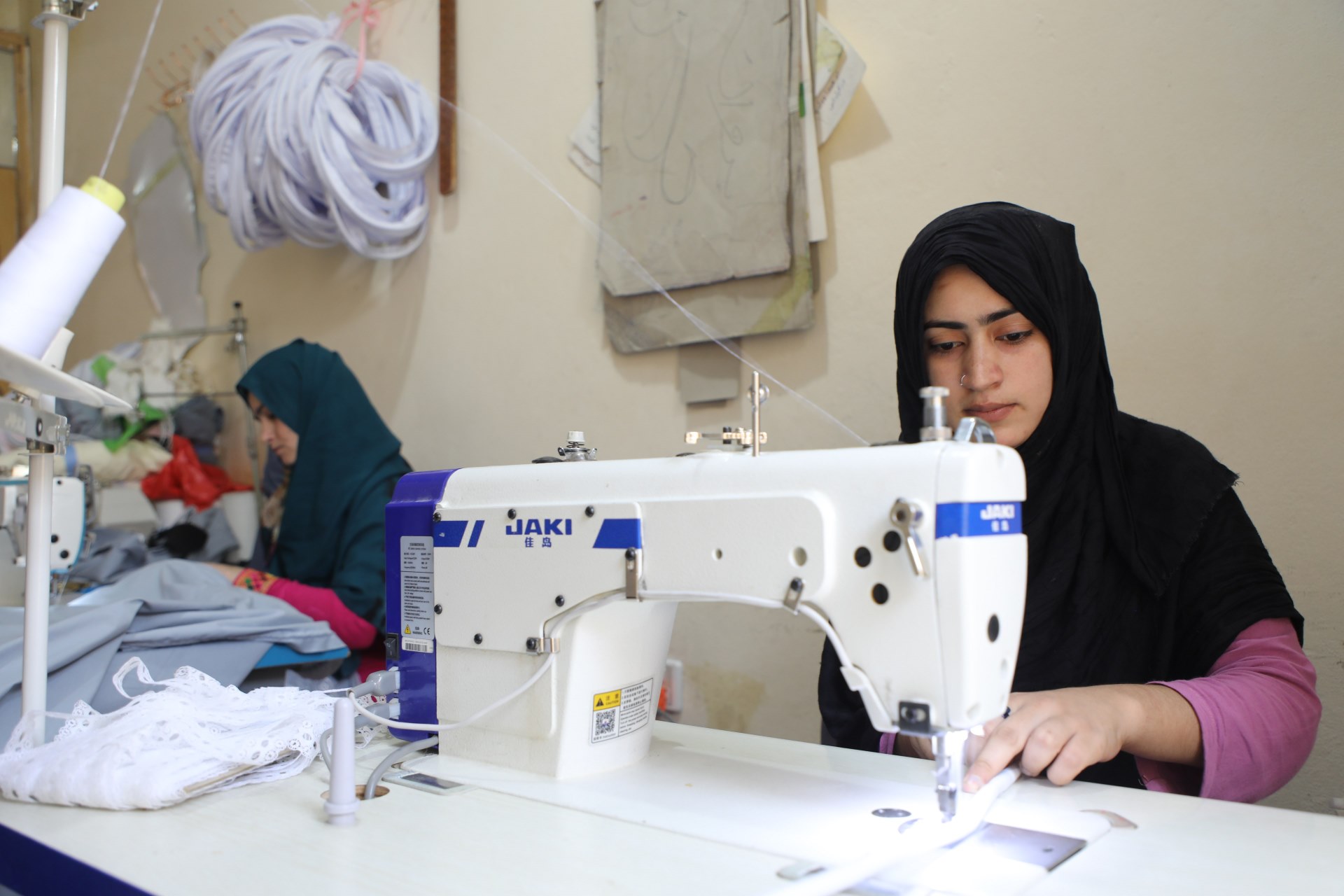
Jalalabad
Jalalabad sits 65km from the Torkham border crossing with Pakistan along the road linking Peshawar to the east and Kabul to the west. The drive from Kabul to Jalalabad reveals fertile valleys traversed by grazing livestock and scattered with vegetable- producing small holdings. Occasionally, we pass makeshift cricket pitches against the Kabul River and Spin Ghar mountains.
Heading east from Jalalabad towards Pakistan, roadside vendors selling watermelons, Bazars, and small townships punctuate olive trees and citrus orchards.
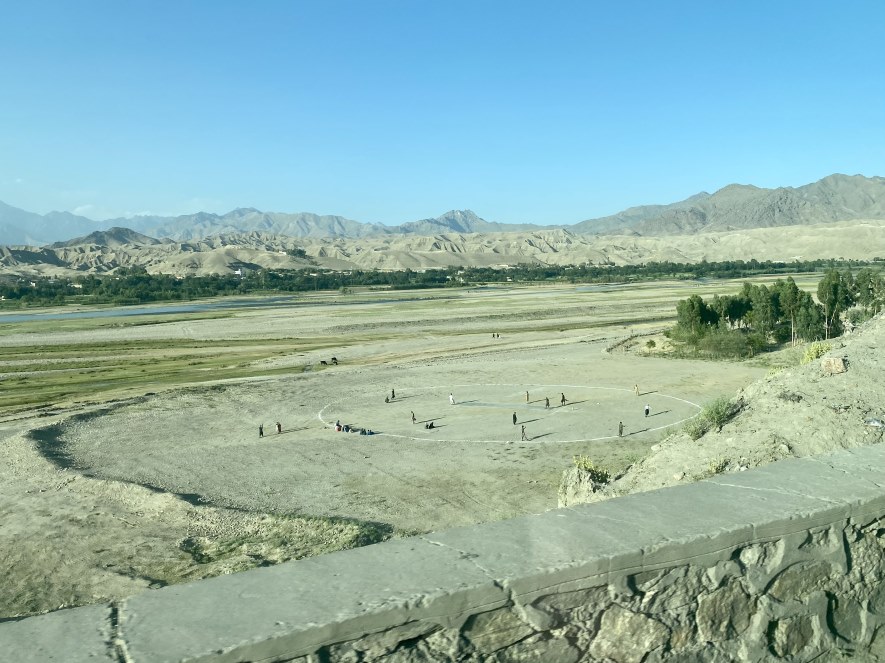
The road from Jalalabad to Kabul
In previous years, the Torkham crossing saw refugees returning from Pakistan. Now, people are going the other way. The humanitarian needs surrounding Jalalabad are immediately apparent. UNDP’s partners in Jalalabad explained that persistent droughts and climate change are causing low crop yields. Joblessness is a reality for many households, meaning most lack money to satisfy their basic human needs. The resulting illiquidity makes it even more difficult for micro and small businesses to prosper.
People from the towns surrounding Jalalabad who were displaced to the city by conflict are returning home in search of food security and livelihoods, only to find already-struggling communities and the risk of eroding social cohesion among displaced and local groups.
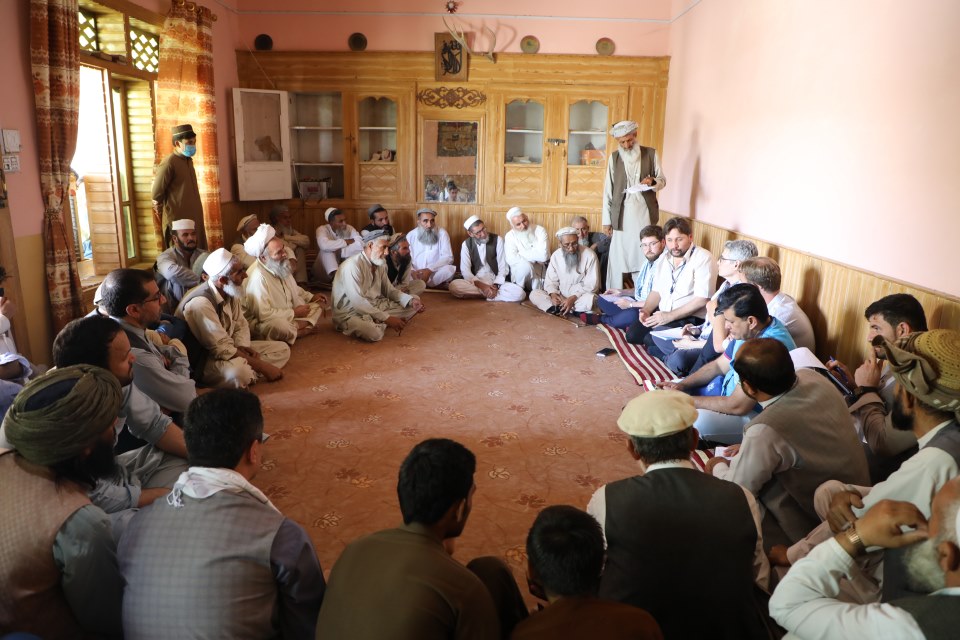
Community elder's explain critical infrastructural needs of the community, that could help deliver sustainable livelihoods for community members
We met with Behsud district’s community elders at a grant disbursement for small businesses under UNDP’s ABADEI programme. They are acutely aware of their community's immediate challenges but are looking for a sustainable, sustainable economic future for the Compona area east of Jalalabad. They came ready with requests – not for humanitarian support – but for priority community infrastructure that can create livelihoods for returning IDPs, returned refugees from Pakistan, and the entire community. Community leaders have a strategy. Water availability is a high priority in the short term. Both wells for drinking water and canals for irrigation. These needs sat alongside requests for seeds for drought-resistant crop varieties, new farming techniques, and fertilisers for the transformation of barren land into arable land.
Community elders were also quick to emphasise the need to support women in setting up small businesses to contribute to community development in poultry farming and garment manufacturing. The key takeaway was that productive infrastructure to support agriculture, direct support to enterprises, and measures to protect the community against drought, floods, and other climate impacts were needed to create jobs. With these measures in place, communities would be equipped – in agriculture and associated sectors – to meet market demands in neighbouring Pakistan. Without this support, however, the community was deeply concerned that those with a resource look to leave Afghanistan.
UNDP and UNHCR will be expanding our joint initiative to Jalalabad, learning lessons from an already successful partnership in Herat. Adapting to the needs and aspirations of communities in Priority Areas of Return and Reintegration (PARRs) in and around Jalalabad, the project will focus on creating sustainable livelihoods for women and creating green jobs that bolster resilience to disaster and climate impacts.

The Future of Support
Women entrepreneurs and workers sit at the centre of Afghanistan's community strategies for economic recovery. The international community must learn from past crises as the country emerges from conflict. A purely humanitarian response is not sufficient to meet the needs of communities, nor is it what leaders within communities want. The people of Afghanistan need support to meet basic needs, to be delivered as part of a strategy that can build resilience, harness strengths, and set new paths for the country. Of course, challenges remain when working on women’s economic empowerment in the current political situation.
The international community must step up to support those women pursuing economic empowerment for themselves and their peers with creativity and courage. UNDP and UNHCR’s joint programme on community resilience is one flagship example of how the UN family works with local partners and communities to put women’s economic empowerment at the heart of sustainable value chains. By leveraging the strengths of specific people and places, area-based programming is helping build routes towards community self- reliance and prosperity for Afghanistan.
__
For further information, contact Fransicsco Santos-Jara Padron (francisco.santos-padron@undp.org)

 Locations
Locations